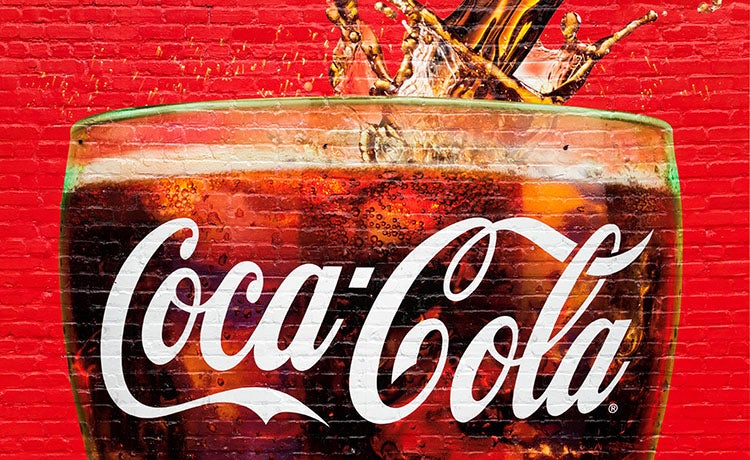Coca-Cola ‘pauses’ marketing spend over ‘lack of ROI’
Coca-Cola says marketing investment in brands has “limited effectiveness” while people are in lockdown due to the coronavirus pandemic, although it is moving some spend into digital.
 Coca-Cola has “paused” marketing spend across its business as it sees a reduction in ROI as a result of the coronavirus outbreak and subsequent lockdowns.
Coca-Cola has “paused” marketing spend across its business as it sees a reduction in ROI as a result of the coronavirus outbreak and subsequent lockdowns.
CEO James Quincey told investors on a call today (21 April) following the release of its first quarter results that the soft drinks giant has seen a “significant and profound impact” on its business as a result of the Covid-19 pandemic, resulting in the halt of the majority of its marketing.
Quincey said: “Many markets are taking a pause as we focus on communities and other priorities. [Whether they are] back later in the year looks dependent very much on the recovery.”
The decision to pull back from marketing spend comes as the company says it has found that in what it calls the initial phase of government responses to the outbreak there is “limited effectiveness” in marketing spend.
“We have determined that in this initial phase there is limited effectiveness in broad-based brand marketing. With this in mind, we have reduced our direct consumer communication, paused sizeable marketing campaigns through the early stages of the crisis and will re-engage when the timing is right,” explained Quincey.
CFO John Murphy added that considerations over ROI came a close second in its thinking to “being close to consumers in a relevant way”.
Coca-Cola’s approach to marketing is the opposite of many others in the FMCG sector that are continuing to invest. Procter and Gamble is investing in marketing as demand soars, saying “now is not the time to come off air”, while frozen food firm Birds Eye believes it has a “responsibility” to keep advertising.
Nevertheless, Coca-Cola says it will scale back marketing, with the precise approach operating on a market by market basis. The company is trying to create flexibility and “optionality”across the business in order to remain agile in the face of the unknown progression of the virus or governments’ response.
Where Coca-Cola is investing, much of its spend is moving to digital, which Quincey says is “serving us very well at the moment”.
Coca-Cola’s sales have been impacted by the virus, in particular the out-of-home drinking sector which accounts for around half its business. Here, it has been “significantly hit”, with global volumes dropping by 25% since the start of April. The closure of restaurants and cinemas is expected to have a more significant impact expected on its second quarter results.
In the first quarter, net revenues declined by 1% year on year to $8.6bn. The company said it had entered 2020 with “solid momentum” and sales volumes were up 3% (excluding China) through the end of February.
It says it is too soon to know the full impact of coronavirus on its business, although it believes “pressures will be temporary” and is optimistic of improvement in the second half of its financial year.
Growth in ecommerce
Despite the drop in sales, the company saw heightened demand from grocery stores and ecommerce channels largely due to stockpiling in March.
Despite Coca-Cola acknowledging that demand had been weakened by the coronavirus, it is encouraged by a doubling in ecommerce sales in some markets.
Quincey said: “We will embrace the seismic consumer shift to ecommerce and we believe that this acceleration is sustainable.”
He added that despite it “simply being too soon to estimate exactly what might lay ahead” the company is planning for three phases of response to the pandemic.
The first phase is where most countries are now with strict social distancing measures. Secondly, “a period of graduating” that will see restaurants and businesses slowly begin to open; and lastly “the new normal” although what that will look like remains unknown.
The uncertainy, however, means Coca-Cola must be prepared for a range of eventualities. “There are lots of things ready to roll against different things coming out,” noted Quincey.
He was also keen to reassure investors, promising that the brand has “always recovered” from world crises throughout its 128-year history.
He concluded: “We’ve been through challenging times before as a company, and we believe we’re well positioned to manage through and emerge stronger.”







